Challenges

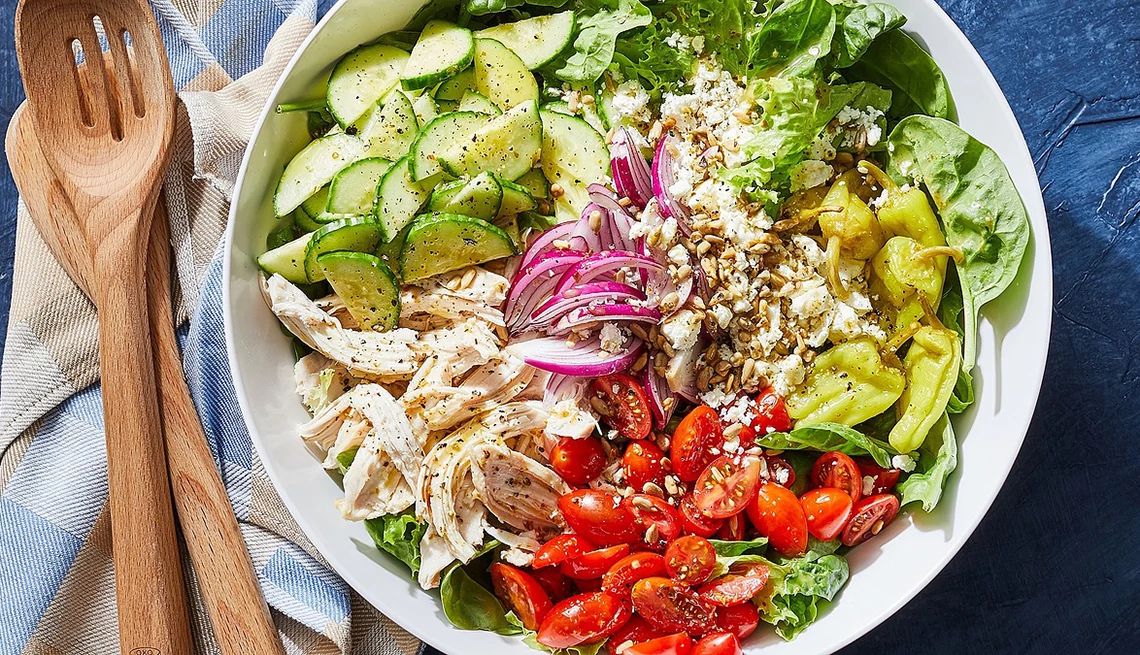
Enjoy a week of delicious meals using ingredients that may help reduce the risk of age-related cognitive decline in this brain-health meal plan.
Most of us have heard that the healthy lifestyle habits we have now can help prevent or lower our risk of developing issues like diabetes and heart disease as we age. But did you know that the habits we forge now can also reduce our risk of cognitive decline as we get older? Growing research shows that people who have high blood pressure, high fasting blood sugars, and heavier body weights in their 20s and 30s are more likely to experience cognitive declines as they get older.
In this healthy Mediterranean-inspired MIND (Mediterranean-DASH Intervention for Neurodegenerative Delay) diet plan, we chose a week of meals with brain-boosting ingredients to provide strategies to help you improve your overall health.
How We Create Meal Plans
Registered dietitians thoughtfully create EatingWell’s meal plans to be easy-to-follow and delicious. Each meal plan meets specific parameters depending on the health condition and/or lifestyle goal it is targeting and is analyzed for accuracy using the nutrition database, ESHA Food Processor. As nutritional needs differ from person to person, we encourage you to use these plans as inspiration and adjust as you see fit.
More About This Meal Plan
Because weight loss can play a role in protecting your brain if you're overweight, we set this plan at 1,500 calories per day, which is a level where most people will lose 1 to 2 pounds per week. This 1,500-calorie meal plan has modifications for 2,000 calories to support those with different calorie needs.
What Is the MIND Diet?
The MIND diet is essentially a Mediterranean diet with a special focus on certain foods that may help protect our brains. Of course, diet isn't the only factor that determines our future brain health—lifestyle habits, exercise, genetics, and a bit of luck also play a role. Because the Mediterranean diet has been shown again and again to be one of the top-rated patterns of healthy eating, it's a great all-around diet to improve your overall health and protect your brain function. To get started, focus on a wide variety of produce, whole grains, legumes, poultry, fish, and healthy fats like olive oil, avocado, nuts, and seeds, plus limit processed foods, added sugars, excess alcohol (more than one glass most days), and red meat.
To follow the MIND diet in this plan, we aimed for three servings of whole grains per day, one serving of leafy greens and one serving of another vegetable each day, berries and poultry at least twice a week, and a serving of beans or lentils at least every other day. Plus, you'll see a glass of red wine on the menu with dinner each evening. If you're not a wine fan or prefer not to have a glass, opt for a serving of berries or a cup of green tea instead.
Foods to Focus on for Brain Health:
- Whole grains (quinoa, whole wheat, oats, freekeh, bulgur, brown rice)
- Nuts and seeds, including natural (no-sugar-added) nut butters
- Leafy greens (like spinach, chard, lettuce, kale)
- Vegetables
- Fruit, especially berries
- Fish
- Chicken and turkey
- Beans and lentils
- Olive oil
- Avocado
- Eggs
Meal-Prep Ideas
Set yourself up for success this week by getting some meal prep done in advance.
- Put together Mason Jar Power Salad with Chickpeas & Tuna through Step 2 to have for lunch on Day 1.
- Prepare the All-Purpose Vinaigrette ahead of time for Days 2 and 3.
- Make Chickpea & Roasted Red Pepper Lettuce Wraps with Tahini Dressing to have for lunch on Days 2 through 5.
Disclaimer:
Note: Consider speaking with your health-care provider about whether this plan is suitable for your individual nutrition needs.
1,500-Calorie Plan
Day 1

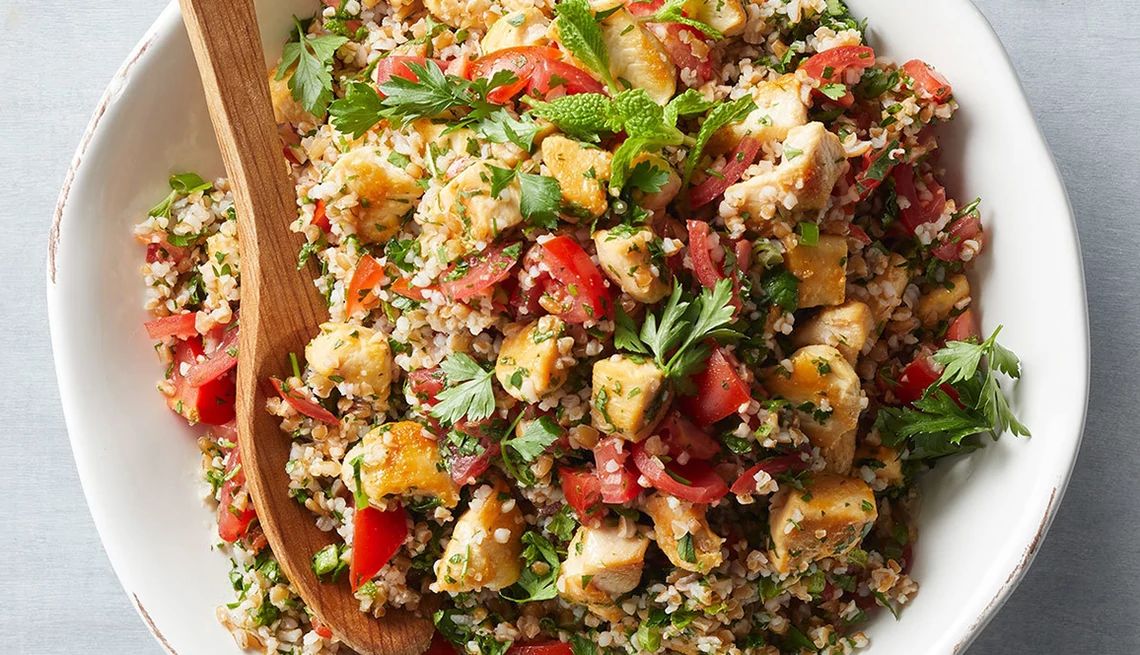
Breakfast (279 calories)
- 1 serving Muesli with Raspberries
A.M. Snack (174 calories)
- 1 serving Everything Bagel Avocado Toast
Lunch (430 calories)
P.M. Snack (154 calories)
- 1 cup sliced carrots
- ¼ cup hummus
Dinner (437 calories)
- 1 serving Tabbouleh with Pan-Seared Chicken
- 5-ounce glass red wine
Day 2

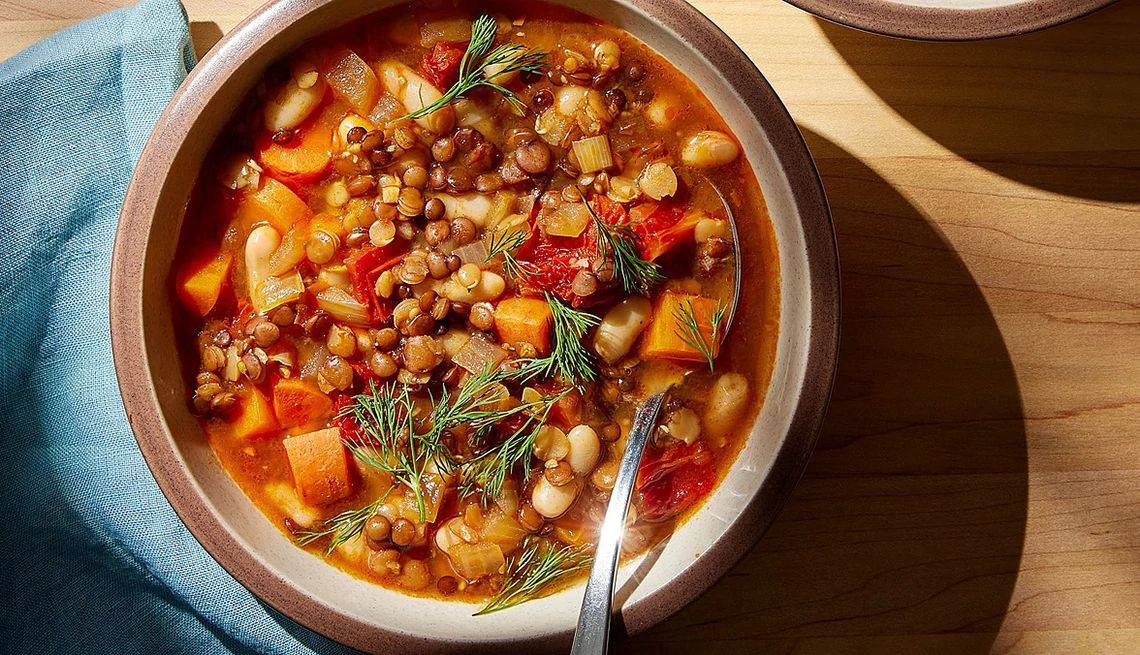
Breakfast (297 calories)
- 1 cup cooked oatmeal, prepared with water
- ½ cup blueberries
- 2 tablespoons chopped walnuts
A.M. Snack (155 calories)
- 3 tablespoons unsalted dry-roasted almonds
Lunch (498 calories)
P.M. Snack (82 calories)
- 6 ounces low-fat plain kefir
Dinner (485 calories)
- 1 serving Vegan Lentil Soup
- 2 cups mixed greens
- 1 serving All-Purpose Vinaigrette
- 5-ounce glass red wine
Day 3

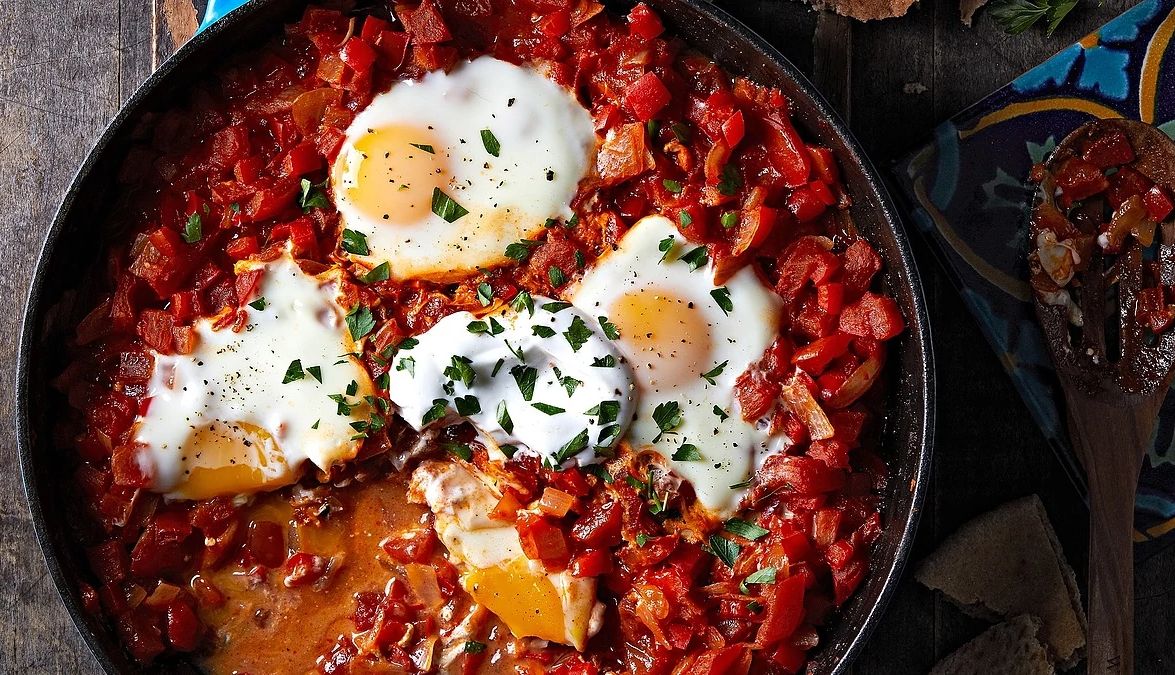
Breakfast (279 calories)
- 1 serving Muesli with Raspberries
A.M. Snack (93 calories)
- 1 cup sliced cucumber
- 3 tablespoons hummus
Lunch (498 calories)
P.M. Snack (155 calories)
- 3 tablespoons unsalted dry-roasted almonds
Dinner (486 calories)
- 1 serving Shakshuka (Eggs Poached in Spicy Tomato Sauce)
- 2 cups mixed greens
- 1 serving All-Purpose Vinaigrette
- 5-ounce glass red wine
Day 4

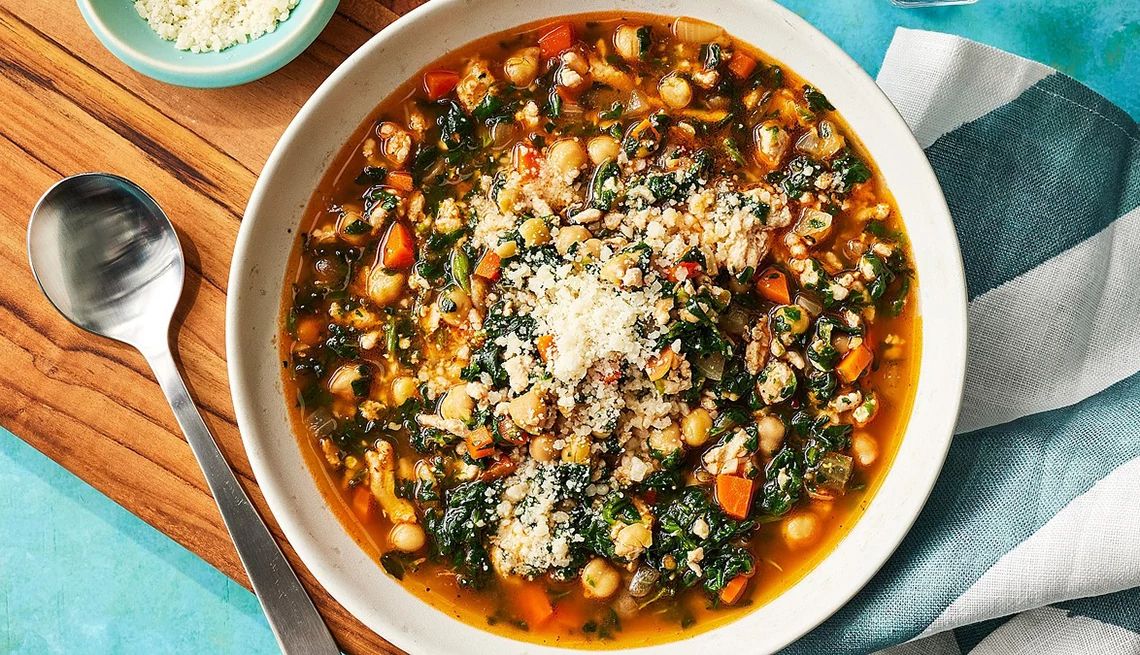
Breakfast (358 calories)
- 1 cup cooked oatmeal, prepared with water
- ⅔ cup blueberries
- 3 tablespoons chopped walnuts
A.M. Snack (27 calories)
- ½ cup sliced strawberries
Lunch (498 calories)
P.M. Snack (50 calories)
- 1 cup sliced carrots
Dinner (564 calories)
- 1 serving Hearty Chickpea & Spinach Stew
- 5-ounce glass red wine
Day 5


Breakfast (279 calories)
- 1 serving Muesli with Raspberries
A.M. Snack (155 calories)
- 3 tablespoons unsalted dry-roasted almonds
Lunch (498 calories)
P.M. Snack (12 calories)
- ¾ cup sliced cucumber
Dinner (583 calories)
- 1 serving Chopped Power Salad with Chicken
- 5-ounce glass red wine







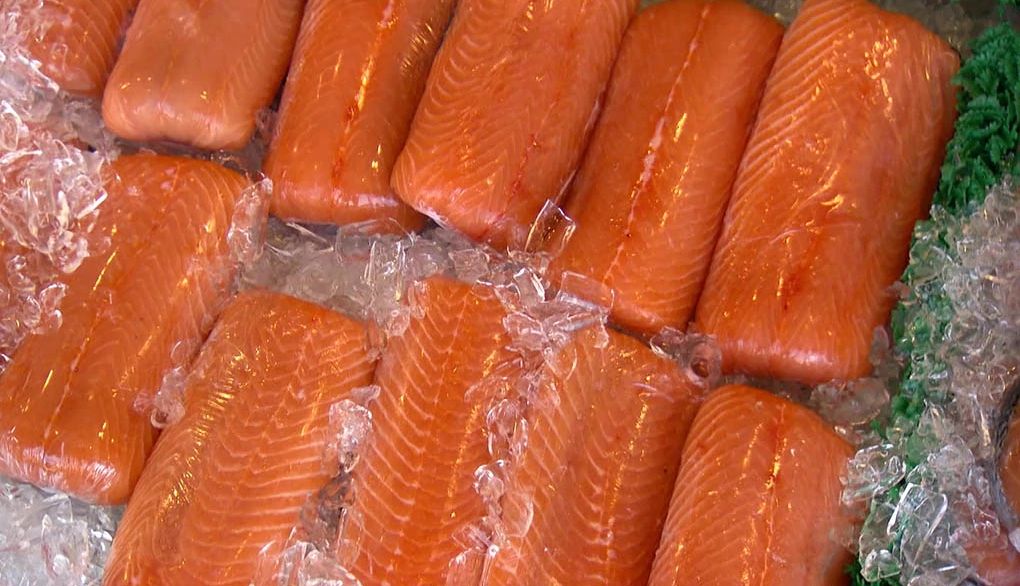
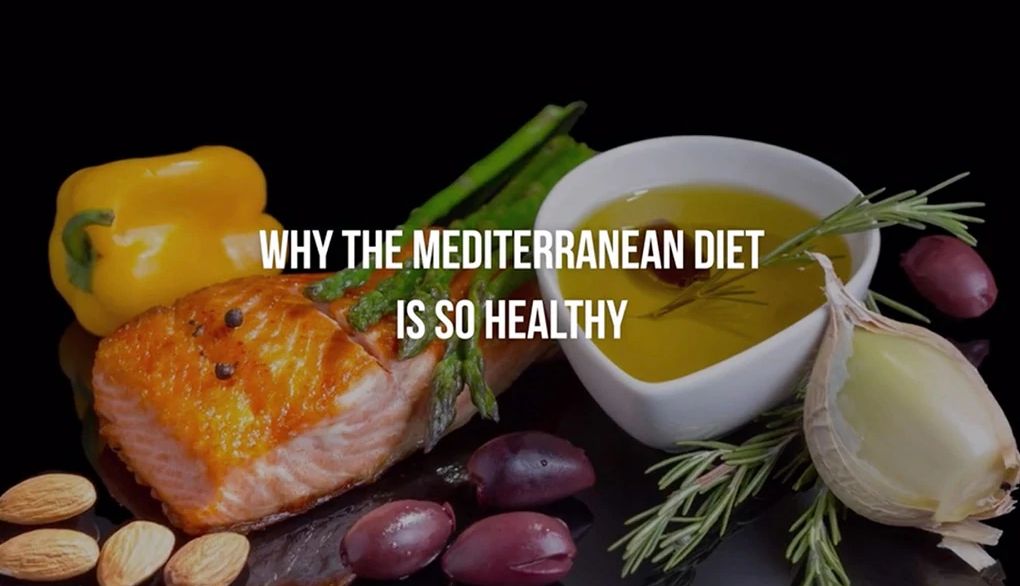
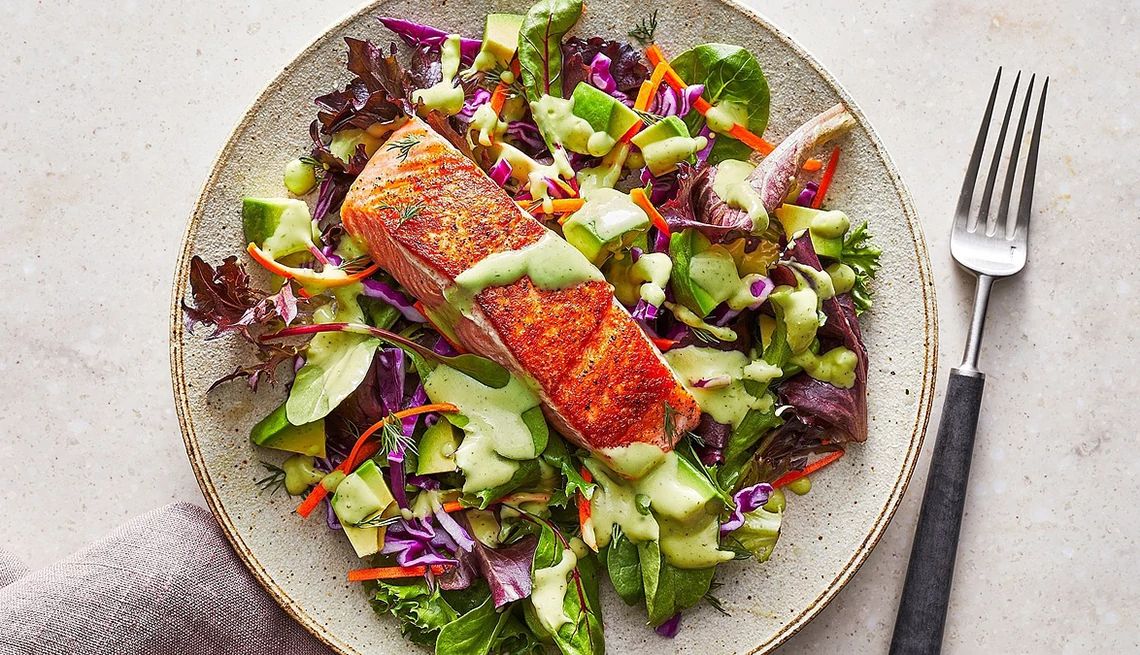
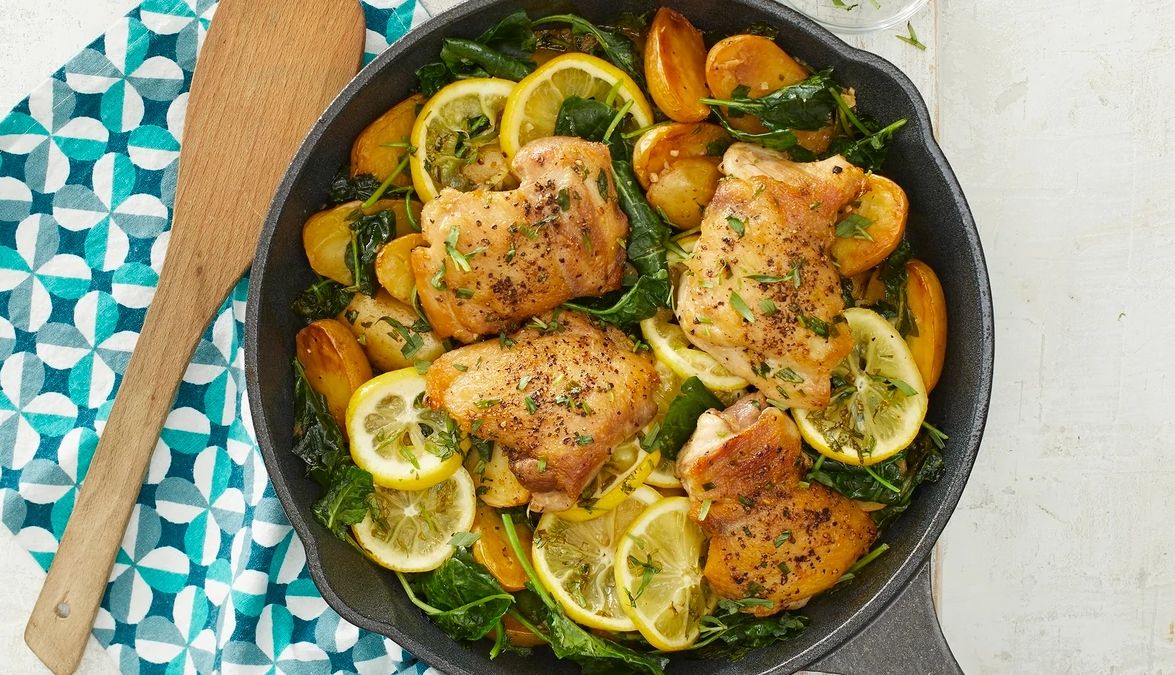





More From Staying Sharp
Snacks for Fuel Before and After a Workout
Make smarter snack time choices
Order Smart at Fast-Food Spots
A few simple swaps can lead to healthier meals
Protein Prep Time
Filling foods to make or buy ahead